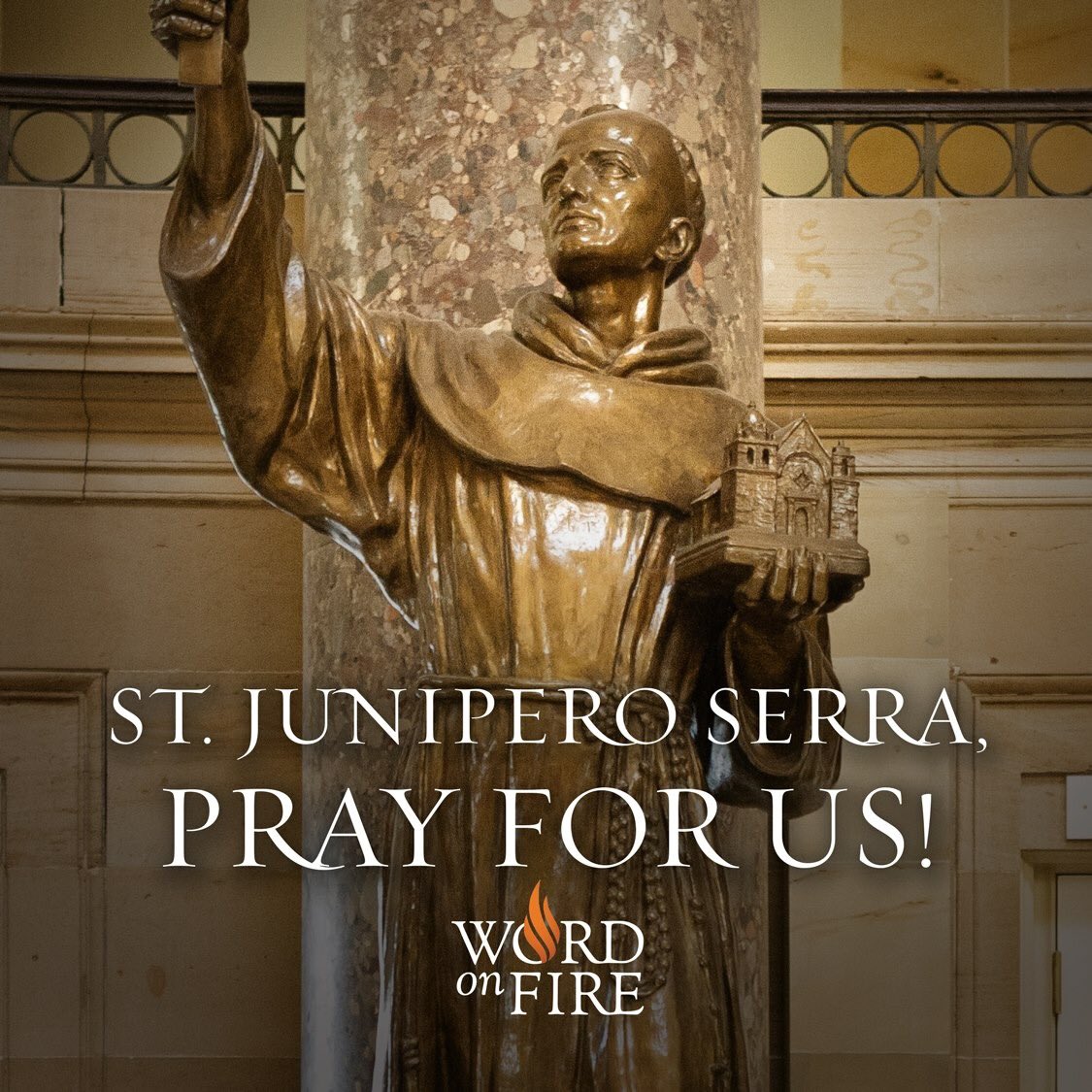faithfulness to God is a question of faithfulness to a person, with whom we are joined in order to walk together along the same road. All that we have in the world does not satisfy our hunger for the infinite. We need Jesus, to remain with Him, to nourish ourselves at His table, on His words of eternal life! To believe in Jesus means making Him the centre, the meaning of our life. Christ is not an accessory element: He is the “living bread,” the indispensable nourishment. Attaching ourselves to Him, in a true relationship of faith and love, does not mean being chained, but [rather] profoundly free, always on a journey.
3. From Pope Benedict XVI in 2009:
You know that for several Sundays the Liturgy has proposed for our reflection Chapter Six of John’s Gospel, in which Jesus presents himself as the “Bread of life… which came down from Heaven”, and, he adds: “if anyone eats of this bread, he will live for ever: and the bread which I shall give for the life of the world is my flesh” (Jn 6: 51). To the Jews who were arguing heatedly among themselves, questioning: “How can this man give us his flesh to eat?” (v. 52) and the world still debates it Jesus replies in every age: “unless you eat the flesh of the Son of man and drink his blood, you have no life in you” (v. 53). We too should reflect on whether we have really understood this message. Today, the 21st Sunday of Ordinary Time, let us meditate on the last part of this chapter in which the Fourth Evangelist mentions the reaction of the people and of the disciples themselves. They were shocked by the Lord’s words to the point that having followed him until then they exclaimed: “This is a hard saying; who can listen to it?” (v. 60). After this, “many of his disciples drew back and no longer went about with him” (v. 66) and the same thing has happened over and over again in various periods of history. One might expect Jesus to seek compromises to make himself better understood, but he does not mitigate what he says. On the contrary, he turns directly to the Twelve and asks them: “Will you also go away?” (v. 67).
This provocative question is not only addressed to listeners in his time, but also reaches the believers and people of every epoch. Today too, many are “shocked” by the paradox of the Christian faith. Jesus’ teaching seems “hard”, too difficult to accept and to put into practice. Then there are those who reject it and abandon Christ; there are those who seek to “adapt his” word to the fashions of the times, misrepresenting its meaning and value. “Will you also go away?” This disturbing provocation resounds in our hearts and expects a personal answer from each one; it is a question addressed to each one of us. Jesus is not content with superficial and formal belonging, a first and enthusiastic adherence is not enough for him; on the contrary, what is necessary is to take part for one’s whole life “in his thinking and in his willing”. Following him fills our hearts with joy and gives full meaning to our existence, but it entails difficulties and sacrifices because very often we must swim against the tide.
“Will you also go away?”. Peter answers Jesus’ question on the Apostles’ behalf, and in the name of believers of every century: “Lord, to whom shall we go? You have the words of eternal life; and we have believed, and have come to know, that you are the Holy One of God” (vv. 68-69).
4. Homily notes from Fr. Roger Landry:
God created us free so that we might love, and the greatest example of love we find in the Eucharist, when Jesus shows us the greatest of all loves, to lay down one’s life for his friends (Jn 15:13). Today the Lord puts before us his own example and says, “Do THIS in memory of me,” which means “love one another as I have loved you,” in this same Eucharistic, self-giving manner. Today the Lord places before us the choice he placed before his disciples in Capernaum — “Do you believe?” or “Do you wish to go away?” Today Joshua challenges us to “choose today who you will serve.” We ask the Lord’s help so that like St. Peter, we may say, “Lord, to whom shall we go? You have the words of eternal life!.” We ask his assistance so that today, when the priest says, “The Body of Christ,” we may say “Amen!” to the truth of the Lord’s real presence in the Eucharist not just with our lips but with our whole beings. We ask his grace to choose Him as completely as He has chosen us (Jn 15:16).
5.
"This is a hard saying; who can accept it?" (Jn 6:60) ~ A Sunday reflection on the freedom of choice and a prayer. http://t.co/CnILEZxCKl
— Adopt-a-Priest (@adopt_a_priest) August 23, 2015
6. Decision time, with Fr. Steve Grunow.
7.
"May the Virgin Mary help us always 'to go' to Jesus in order to experience the freedom that He offers us." #PopeFrancis #Angelus
— SrMadeleine Miller (@SrMadeleine) August 23, 2015
8.
Simon Peter asks, “To whom shall we go?”. It is a life lived in union with that truth which ultimately leads us to Christ.
— Fr James Bradley (@FrJamesBradley) August 23, 2015
9.
Two Hard Sayings in One Day – A Homily for the 21st Sunday of the Year : http://t.co/QKQ2CC0gj8
— Charles Pope (@MsgrPope) August 23, 2015
10. From Magnificat today from Dom Mauro Giusseppe Lepori:
Jesus became sad because they did not believe, they did not yet believe that he had been sent by the Father. They had followed him because of what he said and did, not for who he was. For them, a discourse they could not understand was a reason to leave him, more decisive than who he was for them, more decisive than all the love that they had experienced in his presence. How could they not understand that his presence was the bread that nourished them and gave them the fullness of life, a life as the beloved children of the Father?
Many of them left, forever.
The Twelve stayed. They didn’t dare move a muscle or speak a single word. There seemed to be a heavy silence emanating from the heart of the Lord and spreading around him like winter fog. Can there be any sadness greater than that of the rejection of a gift at the very moment when its full value is displayed?
But although the people’s ability to receive seemed to have been exhausted, the Lord’s gift of love could never be. The suffering on his face betrayed a tranquil decision to make an offering of himself that could penetrate this rejection of him and express the “folly” of a love that wanted to save everyone.
Gently—but as if a boundary were near that could be crossed with a single word—Jesus looked at the little group of confused Apostles. “Will you also go away?” Peter was surprised for a moment when he recognized in the Master’s voice the same tone that he had heard one day from a boy with leprosy, asking them for alms from the side of a country road. An immense sadness took hold of him, and the only reply he could manage was a cry for help. His cry, too, was like that of a beggar: Lord, to whom shall we go? You have the words of eternal life (in 6:68).












